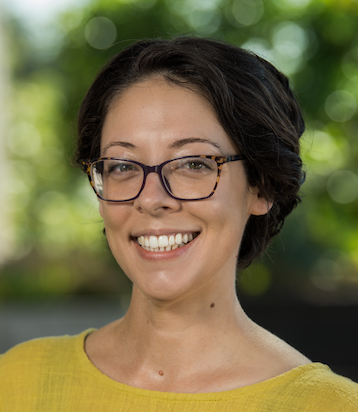Sarah C. Kavassalis

Assistant Professor of Chemistry
B.Sc., University of Toronto
PhD, University of Toronto
The FICUS Lab, led by Prof. Kavassalis, investigates the fundamental chemistry that shapes air quality and climate, with a focus on connecting high-resolution measurements to advanced computational modelling. Our research addresses an overarching question: How can molecular-level chemical understanding and innovative computational approaches improve predictions of Earth’s rapidly evolving climate system?
Our primary research program centers on local ecosystem-atmosphere interactions at the Bernard Field Station, a remnant patch of Southern California coastal sage scrub. Here, we have established a long-term flux site measuring greenhouse gases, energy, and meteorological parameters at sub-second resolution. This initiative enables us to observe, in real-time, how plant communities and their emissions respond to environmental stressors such as intensifying wildfire seasons, urban land-use changes, and evolving atmospheric pollutants. The dataset will provide a rare, mechanistic record of carbon cycling, enabling direct validation of satellite and model-based predictions for our region.
Our group approaches these questions with a toolkit that blends precise field experimentation, computational chemistry, and data science. Students develop expertise in state-of-the-art instrumentation (e.g., infrared spectroscopy and off-line GC-MS), address questions of chemical kinetics and atmospheric modelling, and engage with modern approaches to data analysis and machine learning. By assimilating our observations into computational models, ranging from mechanistic, coupled differential equation solvers to machine learning frameworks, we are improving our understanding of pollutant formation and greenhouse gas fluxes, and how they intersect with public policy and climate change.
Current projects in the FICUS Lab include:
- Eddy covariance measurements of CO₂, water vapour, and energy fluxes at the Bernard Field Station.
- Studying the emissions of irregular terpenes from the California coastal sage scrub and simulating their atmospheric oxidation mechanisms
- Developing and validating computational models that explicitly link plant physiology and atmospheric reactivity.
- Assessing the potential and limitations of data-driven (ML) models in atmospheric chemistry, particularly in the context of non-linear dynamics and sparse observational records.
The FICUS Lab recognizes that our research is conducted on the traditional and unceded lands of the Tongva (Kizh). Indigenous communities face significant and negative impacts from climate and land-use change as a consequence of colonization, including loss of access to land and worsening air quality. Our group is committed to fostering a research environment rooted in justice, equity, and respect for all forms of expertise. Participation in this lab requires consideration of the broader social and environmental contexts within which our work is situated.
Students interested in atmospheric chemistry, climate modelling, field measurements, or data science are encouraged to contact Prof. Kavassalis (Olin 1257A) to discuss research opportunities.
Additional information about work in the group can be found on our website: http://ficus.space
Courses Developed
- CLES 101 – Climate Dynamics (and advanced elective connecting physical chemistry and fluid dynamics)
- CHEM 80 – Numerical Methods for the Central Science (scientific computing and data science for chemists)
- CHEM 170 – Chemistry of the Ocean and Atmosphere (an advanced environmental chemistry course)